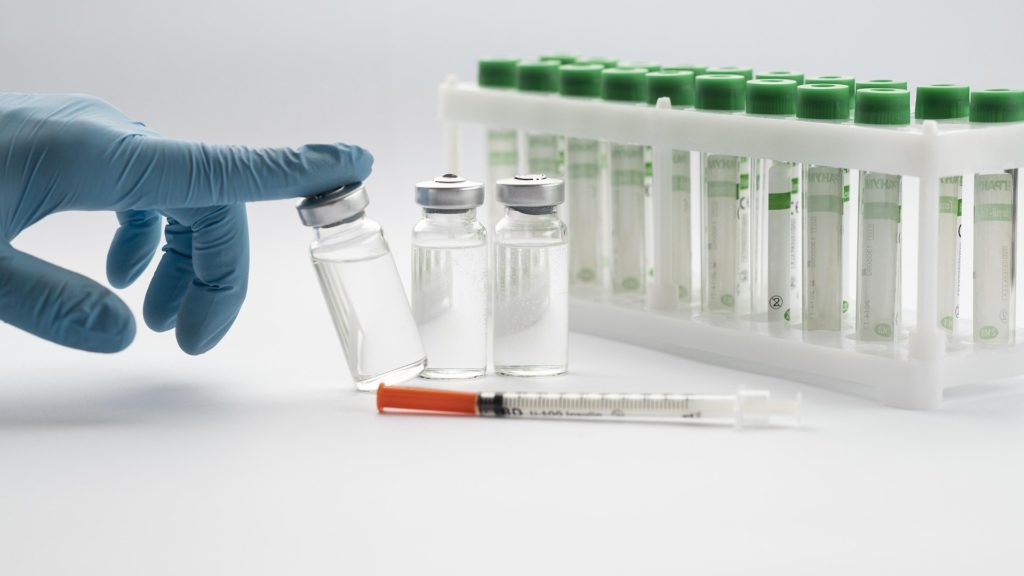Federal authorities in the US have recommended pausing the administration of J&J’s COVID-19 vaccine as half a dozen cases of rare blood clots reported among women who received the vaccine are under investigation. One of the cases was fatal.
In a joint statement, the Centers for Disease Control and Prevention (CDC) and the US Food and Drug Administration (FDA) said they are reviewing data involving six reported US cases of a rare and severe type of blood clot in individuals after receiving the J&J vaccine.
Following the statement early this week, the regulators conducted a joint media call in which the FDA’s Acting Commissioner, Janet Woodcock, MD, stated that, “out of an abundance of caution, we’re recommending a pause in the use of the Johnson & Johnson COVID-19 vaccine due to reports of six cases of a rare and severe type of blood clot following vaccine administration. We’re recommending this pause while we work together to fully understand these events, and also so we can get information out to healthcare providers and vaccine recipients.”
Dr. Woodcock said she wanted to emphasize that “these events appear to be extremely rare.” But she also said, “COVID-19 vaccine safety is a top priority for the federal government and we take all reports of adverse events following vaccination very seriously.”
Related: COVID-19 Vaccine Messaging: Why Vaccine Efficacies Can’t Be Compared and Shopped
For the J&J COVID-19 vaccine, a type of blood clot called cerebral venous sinus thrombosis (CVST) was seen in combination with low levels of blood platelets (thrombocytopenia).
Amidst all of this, it’s important to stress that the blood clot events have been rare and are no higher than the incidence seen in the general population. To put it into context, about 1 in 100,000 people a month develop blood clots. Of the 6.8 million does of the J&J vaccine administered in the US so far, only six cases of clotting events have emerged.
All six cases occurred among women between the ages of 18 and 48, and symptoms occurred six to 13 days after vaccination, according to the FDA. Treatment for this specific type of blood clot is different from the treatment that might typically be administered, said Peter Marks, MD, PhD, Director, FDA Center for Biologics Evaluation and Research. He explained that usually an anticoagulant drug called heparin is used to treat blood clots. In this case, administration of heparin may be dangerous, and alternative treatments need to be given.
The FDA and CDC are advising that individuals who have received the J&J vaccine and develop symptoms of severe headache, abdominal pain, leg pain or shortness of breath within three weeks after vaccination, contact their health care provider.
J&J joins AstraZeneca in its recent COVID-19 vaccine woes, which has also seen rare blood clots in a very small number of cases after administration of its vaccine. Both are adenoviral vector-(AAV) based vaccines. The types of blood clotting events included vaccine-induced prothrombotic immune thrombocytopenia (VIPIT), a condition associated with the development of antibodies that activate platelets to stimulate the formation of clots and resulting in thrombocytopenia, as well as 18 cases of CVST as of March 17.
So far, more than seven million people in the EU and 11 million in the UK have received the AstraZeneca COVID-19 vaccine, among which 37 cases of blood clots have been reported thus far. This led to 16 EU countries including the UK and Spain to halt administration of the vaccine.
While AstraZeneca’s COVID-19 vaccine has not been authorized or approved in the US yet, countries like the UK and Canada had halted and/or made amendments to their administration guidelines of the vaccine as the blood clot cases were investigated. For example, while Canada suspended the use of the vaccine for people under the age of 55, the vaccine recently received the all-clear in the EU after a temporary stall.
The decision in the EU was based on a report by the European Medicines Agency (EMA) published in the British Medical Journal (BMJ), in which the agency concluded that the AstraZeneca COVID-19 vaccine was not linked to an increased risk of blood clots and is both safe and effective as per an investigation it conducted.












Join or login to leave a comment
JOIN LOGIN